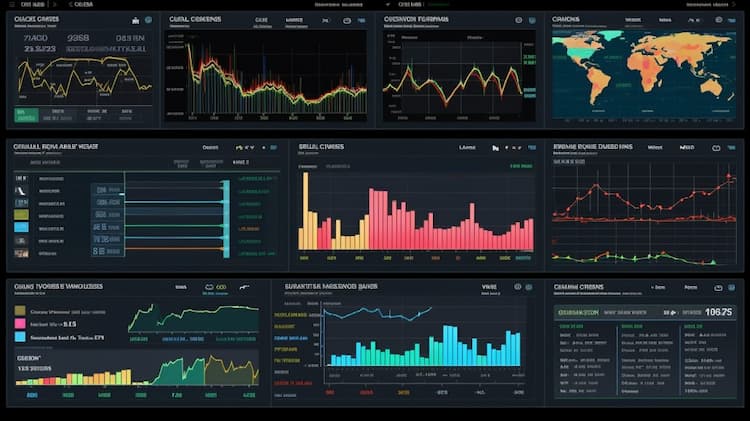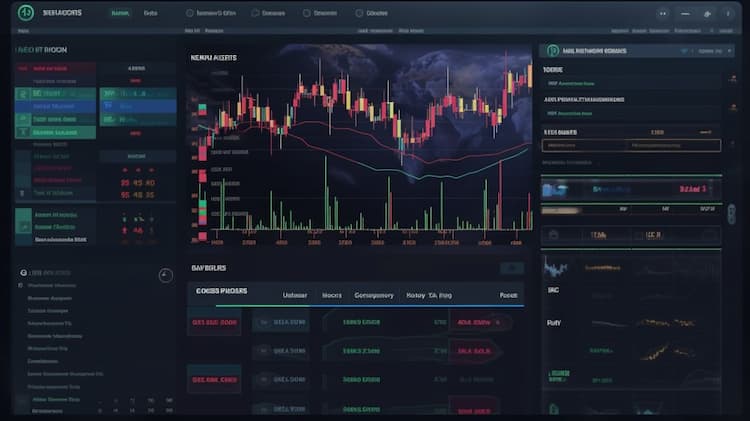
AGG Vs HYG: Sectors and Top Holdings
Exchange-Traded Funds (ETFs) have become an essential component of modern investment strategies, offering a diversified approach to gaining exposure across various sectors and asset classes. In this article, we will delve into a comprehensive comparison between two widely recognized ETFs: AGG (iShares Core U.S. Aggregate Bond ETF) and HYG (iShares iBoxx $ High Yield Corporate Bond ETF). We'll explore a range of critical aspects, including ETF tickers, full names, issuers, sectors, top holdings, capitalization, investment strategy, tracking methods, and exposure.
AGG Vs HYG: Overview
AGG and HYG are two distinct ETFs designed to cater to investors with different risk appetites and investment objectives. AGG focuses on providing exposure to a broad spectrum of U.S. investment-grade bonds, while HYG targets the high yield corporate bond market. This inherent difference shapes the risk and potential return profiles of these ETFs, a theme we'll dissect in the upcoming sections.
AGG Vs HYG: Sectors and Top Holdings
AGG's portfolio is primarily composed of a diverse range of U.S. investment-grade bonds issued by both government entities and corporations. HYG, on the other hand, concentrates on high yield corporate bonds, which inherently come with a higher risk due to the lower credit quality of the issuers. Examining the sectors and top holdings of these ETFs empowers investors to make informed decisions aligned with their risk tolerance and investment goals.
 AGG overlap AGG VS HYG
AGG overlap AGG VS HYG
AGG Vs HYG: Capitalization and Investment Strategy
AGG, being one of the largest bond ETFs, boasts a substantial asset under management (AUM), indicating its popularity among investors seeking stable income and relative safety. HYG's investment strategy revolves around high yield corporate bonds, which offer higher coupon payments but also come with increased credit risk. The difference in capitalization and investment strategy between AGG and HYG underscores the critical importance of understanding the trade-offs between risk and potential return.
AGG Vs HYG: Tracking Methods and Exposure
AGG's primary objective is to mirror the performance of the Bloomberg Barclays U.S. Aggregate Bond Index, offering investors exposure to a diverse array of U.S. investment-grade bonds. HYG, on the other hand, tracks the performance of the Markit iBoxx USD Liquid High Yield Index, which represents the high yield corporate bond market. These different tracking methods translate to varying risk and return dynamics, making it vital for investors to comprehend the underlying benchmarks.
Conclusion
AGG and HYG represent distinct approaches to investing in the fixed-income universe. While AGG offers exposure to a broad range of investment-grade bonds, providing stability and relatively lower risk, HYG aims to capture the potential higher returns of the high yield corporate bond market, accompanied by increased credit risk. For investors seeking deeper insights into the holdings, correlations, overlaps, and various nuances of these ETFs, the ETF Insider platform serves as an invaluable resource. With its user-friendly app, ETF Insider empowers investors with comprehensive information about these and other financial instruments.
Disclaimer: This article is intended for informational purposes only and does not provide investment advisory services.
Sources:
IT ETF issuer: https://www.blackrock.com/
IT ETF official page: https://www.blackrock.com/us/individual/products/239458/ishares-core-total-us-bond-market-etf
HYG quote and analysis
Discover the top holdings, correlations, and overlaps of ETFs using our visualization tool.
Our app allows you to build and track your portfolio.
To learn more about the HYG iShares iBoxx $ High Yield Corporate Bond ETF, access our dedicated page now.
FAQ
Why is AGG better than HYG?
AGG may be considered better than HYG for some investors due to its specific focus, offering diversification.
Does HYG beat AGG?
HYG's performance relative to AGG will vary over time, depending on market conditions.
Should I invest in AGG or HYG?
The choice between AGG and HYG should align with your investment goals, risk tolerance, and desired exposure.
Are AGG and HYG good investments?
Both AGG and HYG can be suitable investments depending on individual investment strategies, goals, and risk profiles.
What is the correlation between AGG and HYG?
The correlation between AGG and HYG can vary over time, reflecting differences in performance.















